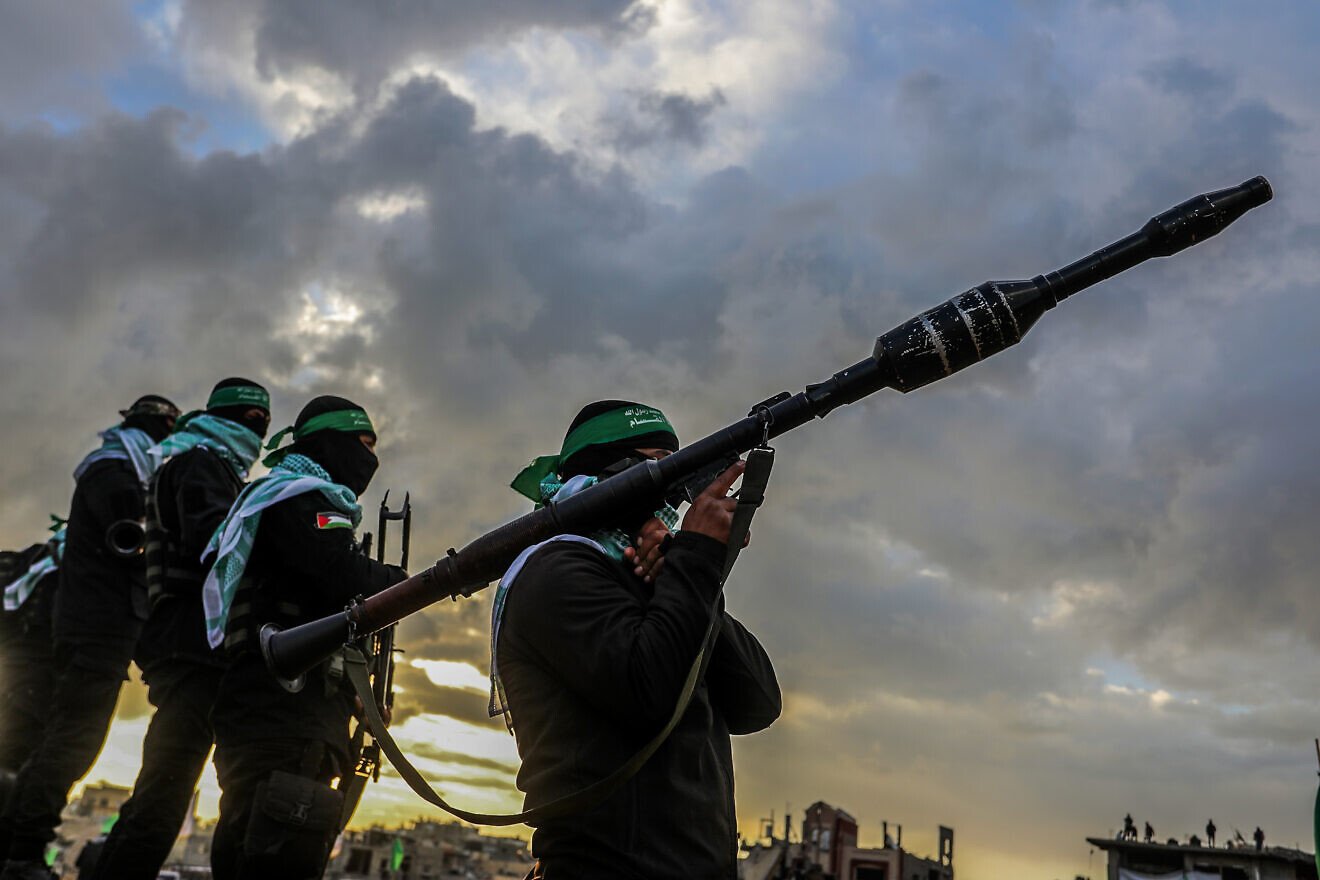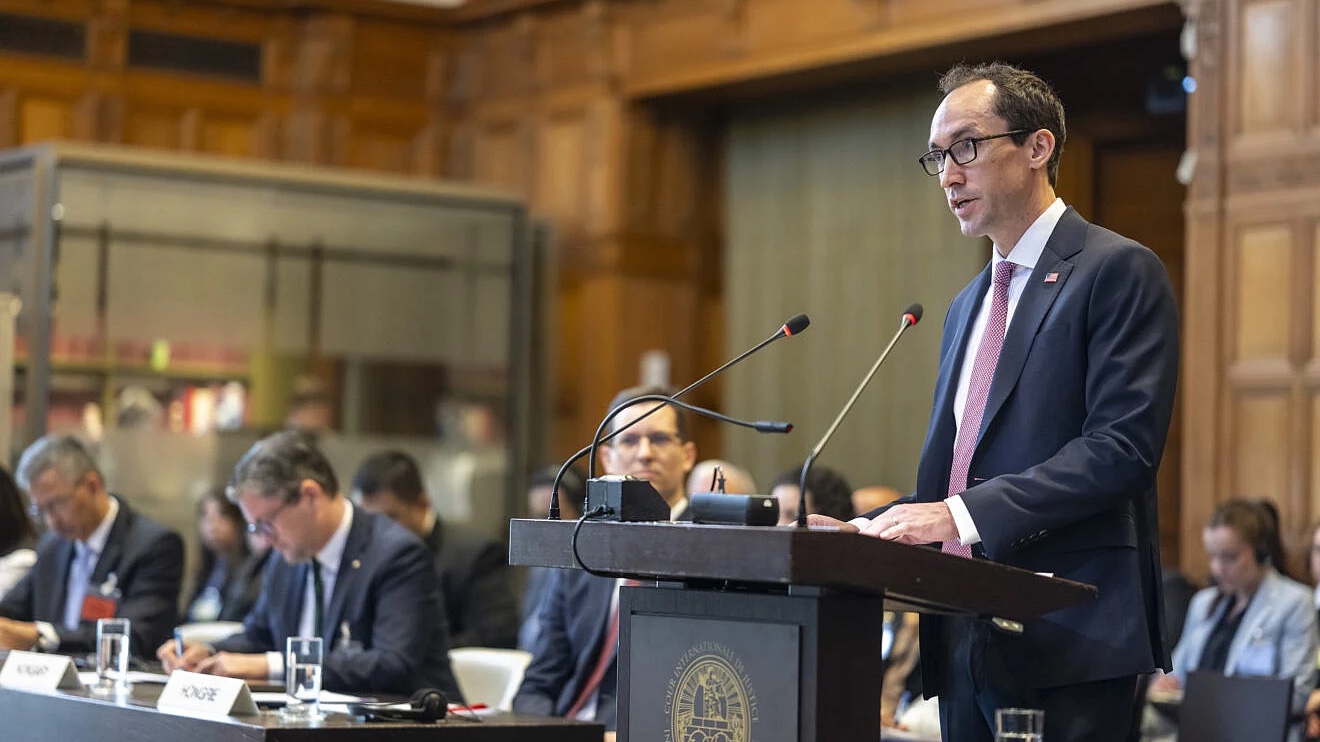(JNS) On Aug. 25, Palestinian Authority deputy leader Hussein al-Sheikh issued a striking public rebuke of Hamas, calling on it to undertake a “comprehensive re-evaluation of its policies” and describing the war in Gaza as a catastrophe greater than the “Nakba” of 1948.
Such statements are routinely hailed in some Western circles as a sign of moderation and a potential opening for a revitalized Palestinian Authority role in governing Gaza once the war ends. Yet this interpretation is deeply misleading.
The rhetoric from Ramallah is disconnected from reality, ignores the PA’s own dependence on Israel for survival in Judea and Samaria and glosses over its longstanding support for terrorism.
While the PA calls for Hamas to reconsider its path, Hamas continues to execute its own people. In recent days, Hamas’s internal security unit murdered four Gazans on charges of collaborating with Israel, including a former PA intelligence officer.
At the same time, Hamas representatives in Cairo and Qatar flatly rejected any notion of disarmament. The terror organization remains totally entrenched in its jihadist ideology and proudly presents international recognition of a Palestinian state as the fruits of its Oct. 7, 2023, massacre.
Meir Ben-Shabbat, Israel’s National Security Adviser from 2017 to 2021 and currently head of the Misgav Institute for National Security and Zionist Strategy, told JNS that the PA’s criticism of Hamas is “hollow.”
“A political rivalry exists between the Palestinian Authority and Hamas, and there is a competition for public support. According to various polls, Hamas is currently very popular among the residents of Judea and Samaria, while Abu Mazen [Mahmoud Abbas] and the Palestinian Authority lag behind and are viewed negatively by a considerable part of the public,” he said.
“From time to time, criticism is heard from senior PA officials against Hamas, mainly about the suffering caused to the population because of it. There is no real impact from these statements. It is clear to everyone that they are said to bash Hamas and to create a distinction between it and the PA,” he added.
The idea that this same PA could govern Gaza, Ben-Shabbat argued, reflects a dangerous historical amnesia. “Anyone who calls for entrusting the administration of Gaza to them forgets that this is what Israel did before 2005. We know what came of it. The Palestinian Authority is not even capable of dealing with the challenges in Judea and Samaria on its own,” he said, pointing to large-scale Israeli security operations in Jenin, Tulkarem and northern Samaria over the past year.
He also noted calls by senior sheikhs in Hebron to disconnect themselves from the PA and maintain independent ties with Israel under the Abraham Accords framework.
“As long as Hamas remains the central power in the Strip, no other entity besides the IDF will be able to govern the Strip,” Ben-Shabbat said. “Any entity entrusted with this in such a reality will be, in total, a cover-up and will in practice provide cover for Hamas, similar to the model that existed in practice in Lebanon with Hezbollah.”
The international rush to recognize a Palestinian state is, in this context, extremely damaging, he argued, since it hands Hamas a major political victory. Ben-Shabbat pointed to the words of Hamas leaders themselves.
Ghazi Hamad, who is based in Qatar, defined the initiative to recognize a Palestinian state as “one of the fruits of the Oct. 7 attack” and insisted that “the weapon of resistance is the essence of the Palestinian issue, we in Hamas are committed to this and will not hand over even one empty bullet.”
Another Hamas senior figure, Husam Badran, declared that “the recognition of a Palestinian state came as a result of the ‘Al-Aqsa Flood’ war and the steadfastness of the ‘resistance.’”
“The crowning of Hamas as the factor thanks to which the Palestinians will receive this achievement, together with its high popularity among the Palestinian public, as the succession struggle over the post-Abu Mazen period has already begun in the background, will shorten the path for Hamas to take over the PA in Judea and Samaria as well,” Ben-Shabbat warned.
“And not only that,” he said. “Any achievement credited to Hamas, particularly such a political move, is a tailwind for the path of terror. Instead of uniting around the position that this path is fundamentally wrong, the message in this step is the opposite: Terrorism pays off.”
Ben-Shabbat stressed that any idea of the PA assuming the role of a functional independent state ignores its fundamental flaws. “Without the crutches provided by Israel, it is doubtful the PA could even stand on its own in the face of its challenges,” he said. The problems, he added, include its limited legitimacy, internal structural weakness, inability to enforce order, support for terrorism and failure to confront security threats.
Ultimately, he argued, Israel can rely only on itself. “After the heavy price Israel has paid and is still paying, the political echelon is not only entitled but obligated to take a sober, cautious and suspicious approach in its political stance, to rely only on ourselves and to avoid entering into processes that will be difficult, if not impossible, to exit,” he said.
“In terms of security, whatever the definition of the Palestinians may be, Israel will have to continue its presence and do for its security everything it does today. Without any compromises. This is the meaning of the intention to defend ourselves by ourselves.”
Col. (res.) Moshe Elad, one of the founders of Israeli-PA security coordination and a former IDF military governor, echoed the view of the PA’s weakness in an interview with the Hebrew daily, Maariv. He described the wave of recognition of a Palestinian state as “punitive recognition” by European governments angry with Israel over the war in Gaza.
He compared the PA to “a princess in a continuous coronation ceremony; everyone comes, everyone blesses, only the crown never arrives.”
Elad argued that the PA’s own failures are the primary reason it has no state. “If the Palestinians do not have a state until now, it is because of their stubbornness to dictate the terms of an agreement with Israel and determine the borders; because the PA has become addicted to donations instead of earning on its own; because it has failed time and again in state management; and because of its desire to force Israel back to the 1948 borders through terrorism, rioting, legal steps and provocations.”
Quietly, the PA’s security forces still coordinate with Israel to ward off Hamas, which has been trying to overthrow it in Judea and Samaria just as it did in Gaza in 2007. This double game enables the PA to enjoy the benefits of Israel’s security operations while publicly condemning and inciting against Israel both internationally and domestically.
The PA’s weakness is compounded by its own ideology and priorities. According to an August 25 report by Palestinian Media Watch, while Palestinian teachers threaten to strike over not being paid, the PA continues to prioritize its “Pay-for-Slay” policy, spending $30 million a month on salaries for imprisoned terrorists and the families of “martyrs.” Abbas himself declared in a February 2025 speech, “Even if we have only one penny left, it is for the prisoners and martyrs. They are more precious than all of us.”
Even as its civil servants go without pay, the PA continues to glorify terrorists. On Aug. 16, al-Sheikh personally visited the family of arch-terrorist Marwan Barghouti, who is serving five life sentences for murder, calling him a “symbol of the Palestinian struggle.”
The bottom line is clear. Hamas thrives on bloodshed; the PA clings to power with Israel’s protection while glorifying terrorism; and international recognition of Palestinian statehood risks rewarding terror at the very moment it should be delegitimized. Israel, as Ben-Shabbat concluded, has no choice but to defend itself by itself.
Want more news from Israel?
Click Here to sign up for our FREE daily email updates














